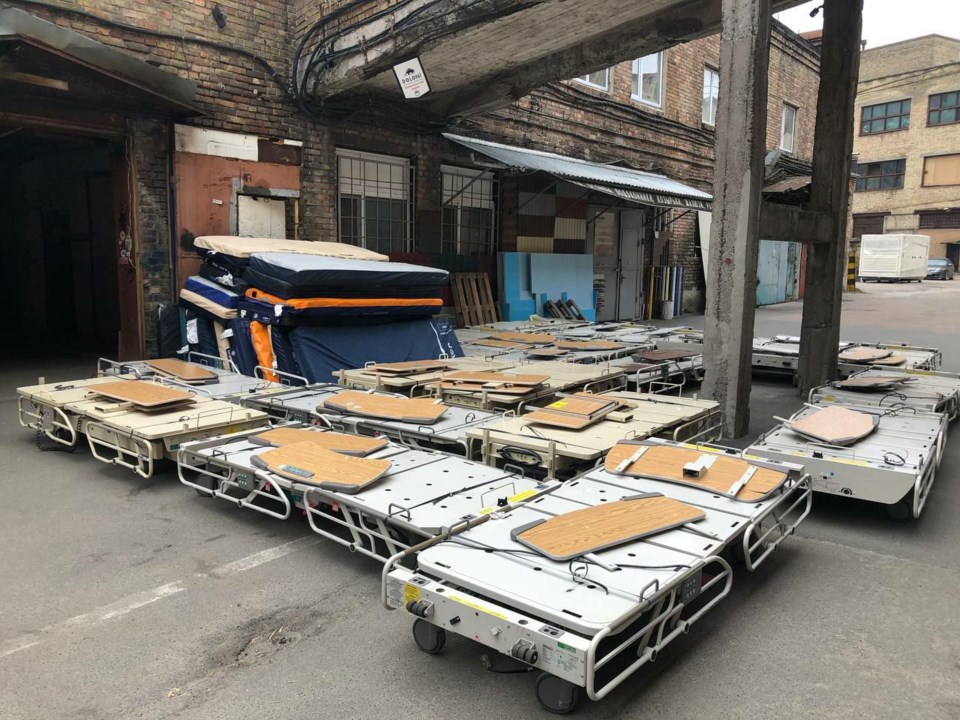When the long-term care team at Fraser Health secured a federal grant to purchase new, more enhanced beds and mattresses for the hospitals, they were faced with a new conundrum: what to do with the old ones?
The result: a creative, sustainable solution.
The team, in collaboration with Fraser Health’s commercial services team, prepared to repurpose the still-usable beds and mattresses and donate to people in need, giving them a second life.
Last fall, the long-term care team secured a federal grant from the Shared Health Priorities and Safe Long-Term Care Fund to purchase new beds and mattresses with more enhanced features.
Twenty-seven (27) new beds were procured by long-term care facilities in Burnaby and more by the other long-term care facilities in Fraser Health, they noted — all with enhanced features, including fall detection and the ability to accommodate residents at every level of care.
The old beds were then collected, packaged and donated to countries in need, including conflict area zones like Ukraine, and developing countries like Liberia, Sierra Leone and Nigeria.
The commercial services team, led by Morgan Cartier, the contract manager of waste management at Fraser Health, embarked on a search for healthcare facilities in need of beds and mattresses.
Soon, they found organizations accepting medical donations for shipment overseas.
Cartier said costs of disposing these old beds would’ve been expensive, and bad for the environment. So repurposing and donating them, it is sustainable for the environment and supports health care initiatives in conflict areas and developing countries.
The donations were made possible by a partnership with Burnaby non-profit Rotary World Help and Korle-Bu Neuroscience Foundation, which focuses on enhancing West Africa's health care, noted a news release.
In the past six months, 299 beds and 256 mattresses were sent to Ukraine, Liberia, Sierra Leone and Nigeria.
Beds donated to Ukraine were meant to serve for humanitarian aid, in light of the ongoing war, while beds in Liberia and Sierra Leone went to clinics, hospitals and health centres.
The two dozen beds in Nigeria will be used in a teaching hospital, Fraser Health noted.
Cartier said there's two big benefits to this step taken by the Fraser Health. One, the sustainability as the beds and waste stay out of landfills for eons. Two, the impact on the lives of people the beds were donated to.
"We were connected to people in Ukraine and they were FaceTiming us.…and just seeing how grateful they were, the tears in their eyes [was moving] and we saw pictures of them being repurposed over in Ukraine," Cartier added.
"I think sustainability is what started it (the project), but then the end result of seeing how they can repurpose and how appreciate their work really wrapped up the project."
The project was an ode to community coming together with Fraser Health to change lives of people in any part of the world, he said.
While Cartier rarely gets to see the benefit of their work from working in the corporate side of healthcare, to see this work’s positive impact, he added.
"It made me feel amazing and kind of tells you that hard work is definitely worth it."



